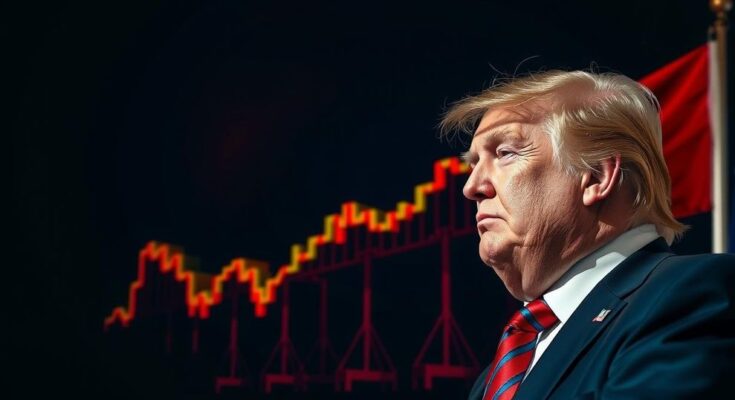President-elect Donald Trump plans to implement a 10% tariff on Chinese products and a 25% tariff on goods from Canada and Mexico as a response to drug trafficking and illegal immigration. He emphasizes that these tariffs will persist until the flow of drugs ceases, stating that the situation is an invasion. Trump’s strategy reflects his America First policy and has garnered commentary regarding its potential political implications.
President-elect Donald Trump has declared his intention to impose an additional 10 percent tariff on all products imported from China, as well as a 25 percent tariff on goods from Canada and Mexico. In a post on Truth Social, Trump expressed frustration over the influx of drugs, particularly fentanyl, entering the United States from Mexico, stating, “I have had many talks with China about the massive amounts of drugs… But to no avail.” He emphasized that the tariffs would remain in place until the flow of drugs and illegal immigration ceases, calling it an invasion. During his campaign for the 2024 election, he reiterated these plans, linking economic measures to his immigration policy. Bill Ackman, a billionaire investor, remarked that such tariffs would be used strategically to achieve desired political outcomes, highlighting Trump’s approach to foreign policy before even taking office. The U.S. Census Bureau reported that imports from China totaled approximately $433 billion, underscoring the significance of the proposed tariffs.
The article discusses the recent announcement by President-elect Donald Trump regarding increased tariffs on goods from China, Canada, and Mexico, citing concerns over drug trafficking and illegal immigration. Trump’s statements reflect a continuation of his America First policy, which aims to protect U.S. interests economically while addressing the challenges posed by illicit substances entering the country. The linkage between tariffs and immigration policy demonstrates a strategic approach to leveraging economic tools for political objectives, particularly in the context of drug-related crises in the United States.
In summary, President-elect Donald Trump’s proposed tariffs on China, Canada, and Mexico represent a multifaceted strategy aimed at combating drug trafficking and illegal immigration. By threatening significant economic penalties, Trump aims to address pressing issues affecting U.S. borders and public health. This approach has garnered attention, with figures such as Bill Ackman acknowledging the potential for tariffs to be used as instruments of foreign policy. As these developments unfold, the implications for U.S.-China and U.S.-Mexico relations will remain a focal point in political discussions.
Original Source: www.newsweek.com




